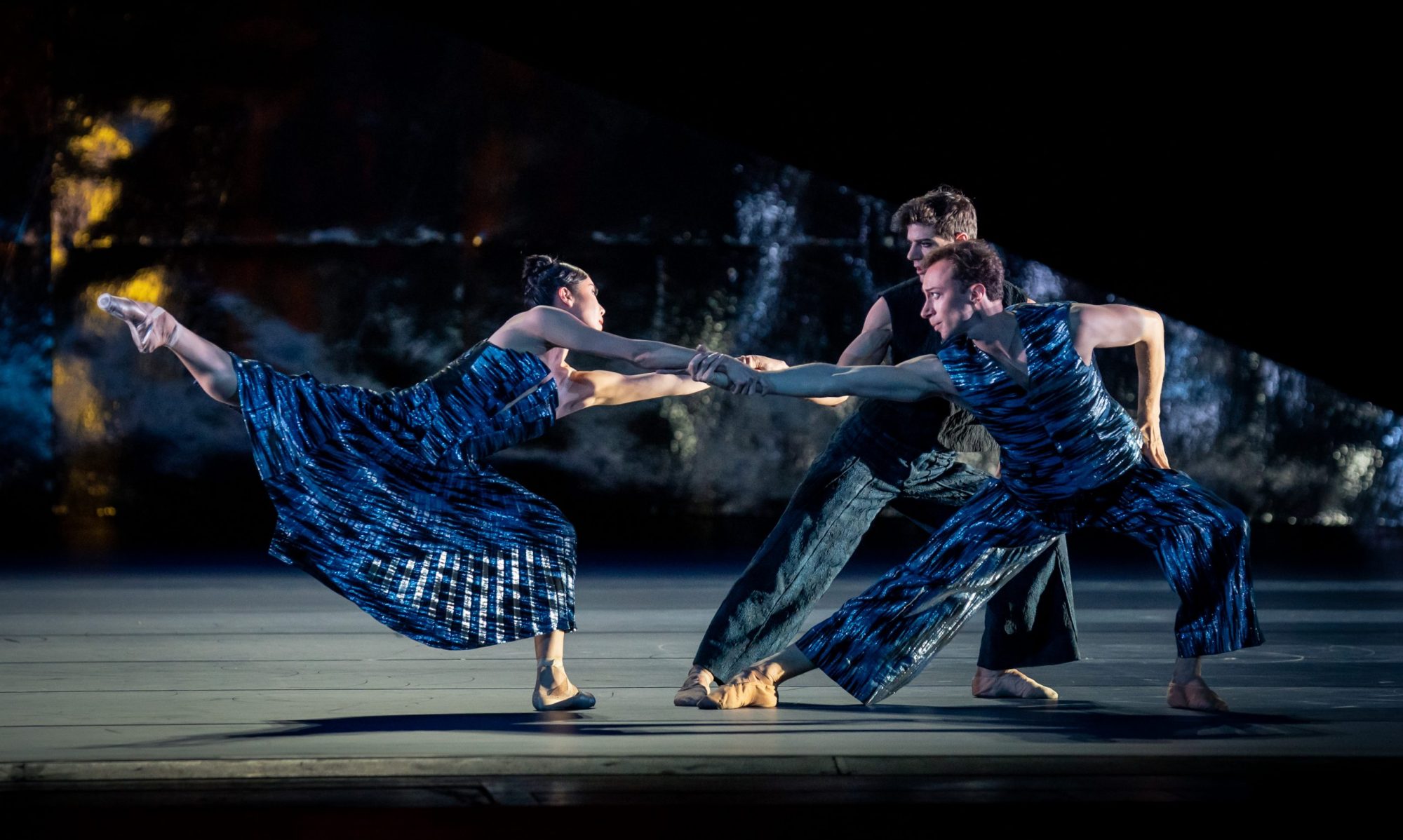Prix Benois de la Danse
Mukaram Avakhri, Wang Ge, Thomas Lebrun, Andrey Merkuriev, Mthuthuzeli November, Alexander Sergeev
Bolshoi Theatre (Historic Stage)
Moscow, Russia
June 2025
by Ilona Landgraf
Copyright © 2025 by Ilona Landgraf
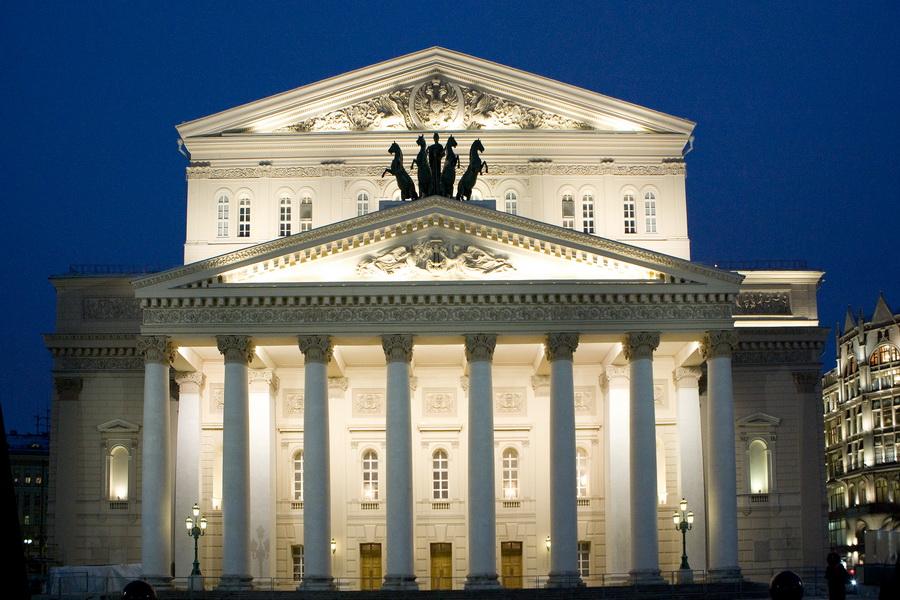
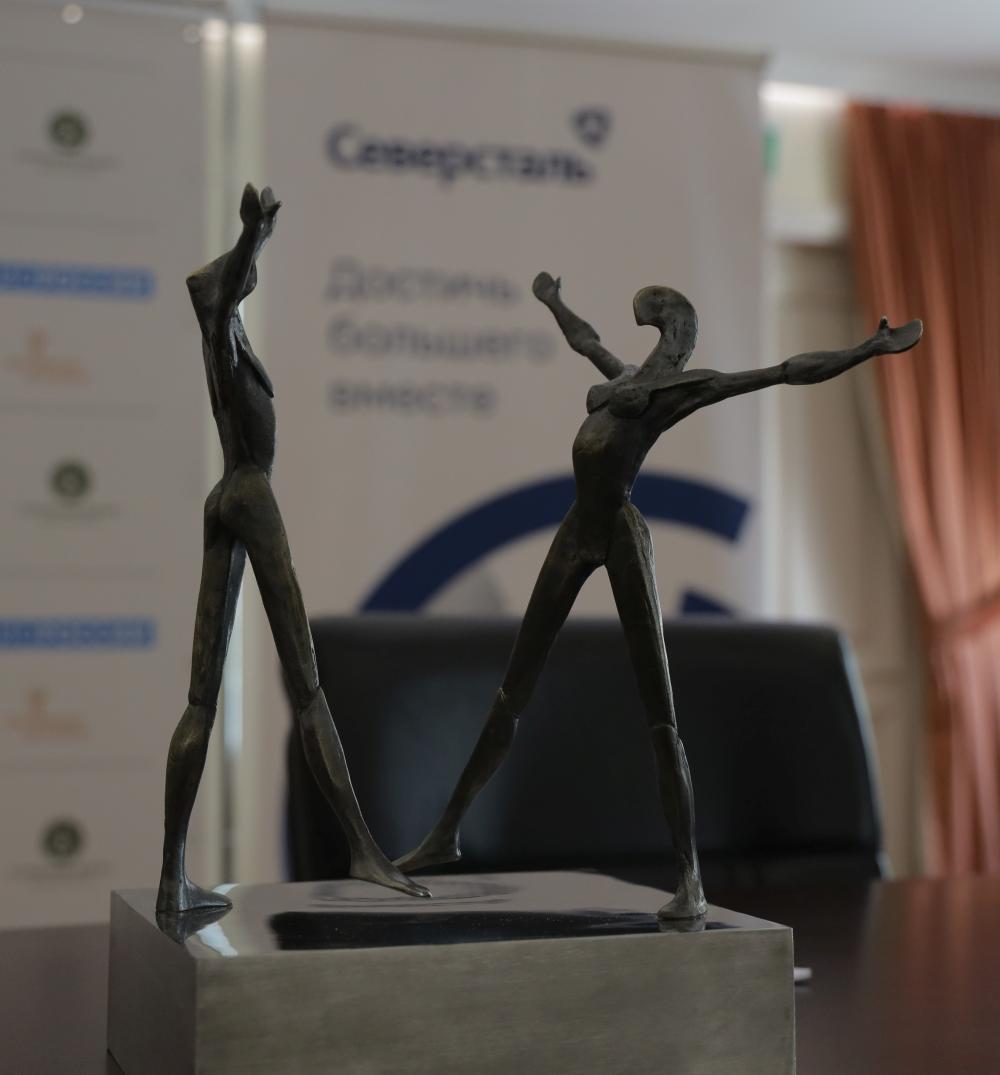 On June 17th, the Bolshoi Theatre’s Historic Stage will host the annual Prix Benois charity gala and awards ceremony. Traditionally, laureates of previous years have performed in a gala concert on the following evening. Prizes will be awarded for the best choreographer, female dancer, and male dancer. This year’s festival will pay tribute to Yuri Grigorovich, who passed away on May 19th. Grigorovich founded the Prix Benois competition in 1991 and served as chairman of the jury, artistic director, and president.
On June 17th, the Bolshoi Theatre’s Historic Stage will host the annual Prix Benois charity gala and awards ceremony. Traditionally, laureates of previous years have performed in a gala concert on the following evening. Prizes will be awarded for the best choreographer, female dancer, and male dancer. This year’s festival will pay tribute to Yuri Grigorovich, who passed away on May 19th. Grigorovich founded the Prix Benois competition in 1991 and served as chairman of the jury, artistic director, and president.
Below is an overview of the six nominated choreographers. A report of the dancer nominees will follow.
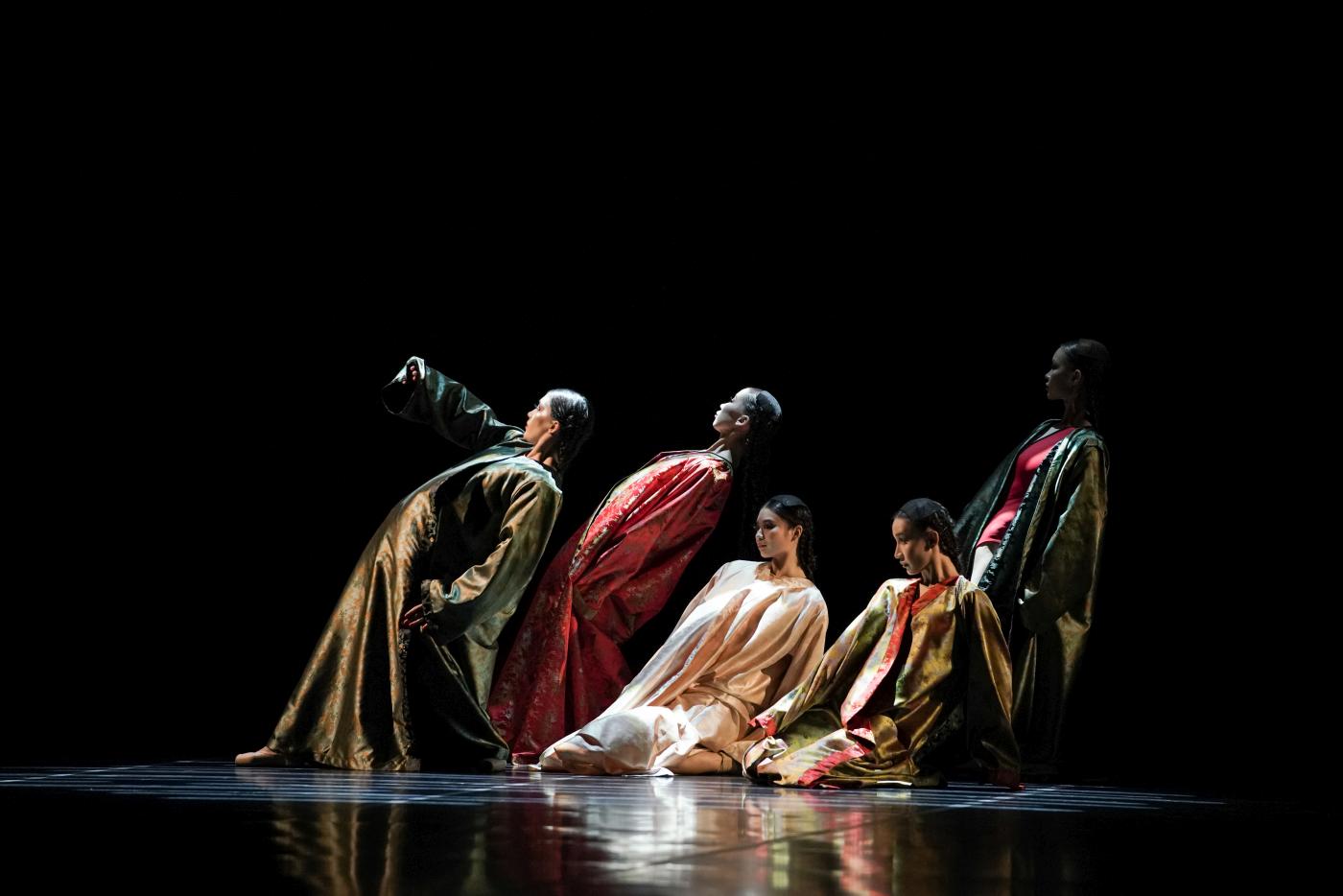
 Mukaram Avakhri was trained at the Choreographic School of Almaty, Kazakhstan, and subsequently danced with the Abay Kazakh State Academic Opera and Ballet Theatre where she simultaneously choreographed her first pieces for Almaty’s Republican Academic Uighur Musical Comedy Theatre. Since 2017, Avakhri has been the chief choreographer of the Astana Ballet Theatre. She was nominated for the Prix Benois for her ballet triptych Sacred Dances, which premiered with the Astana Ballet in 2024. Its three parts share the theme of a spiritual connection between times and cultures. A poem by the Kazakh writer Olzhas Suleimenov inspired the first part, Rukh, which is about ancestors and their unity with nature. The second part, QASH, refers to the traditions of Eastern peoples and modernity’s influence upon them. The final part, Wedding, set to Igor Stravinsky’s Les Noces, explores the hidden emotions of newlyweds.
Mukaram Avakhri was trained at the Choreographic School of Almaty, Kazakhstan, and subsequently danced with the Abay Kazakh State Academic Opera and Ballet Theatre where she simultaneously choreographed her first pieces for Almaty’s Republican Academic Uighur Musical Comedy Theatre. Since 2017, Avakhri has been the chief choreographer of the Astana Ballet Theatre. She was nominated for the Prix Benois for her ballet triptych Sacred Dances, which premiered with the Astana Ballet in 2024. Its three parts share the theme of a spiritual connection between times and cultures. A poem by the Kazakh writer Olzhas Suleimenov inspired the first part, Rukh, which is about ancestors and their unity with nature. The second part, QASH, refers to the traditions of Eastern peoples and modernity’s influence upon them. The final part, Wedding, set to Igor Stravinsky’s Les Noces, explores the hidden emotions of newlyweds.
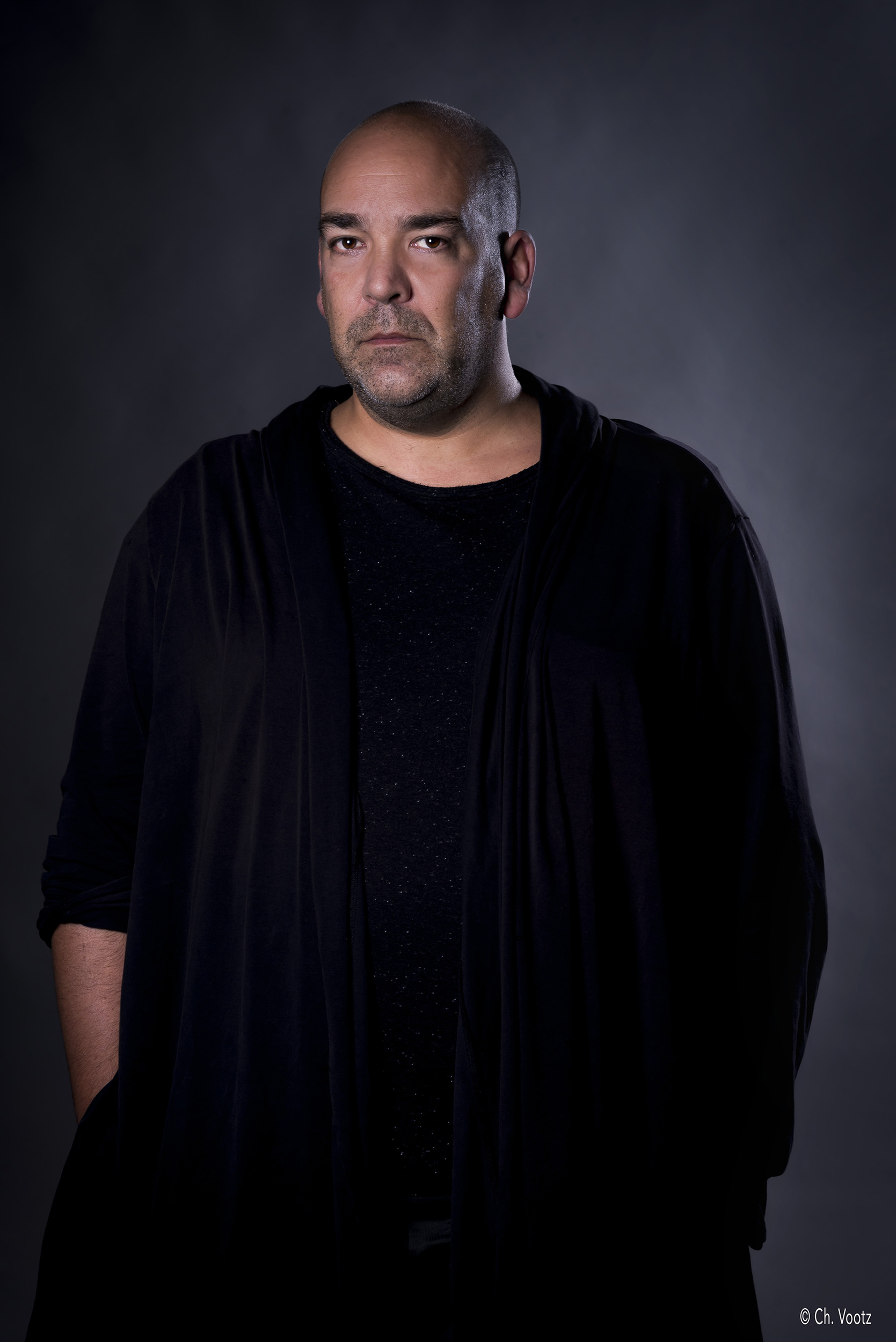
 Thomas Lebrun is a French dancer and choreographer and, since 2012, director of the National Choreographic Center of Tours, France. His works have been staged in France and abroad. Lebrun was nominated for Le titre n’a pas d’importance, a pas de deux for two women of different generations set to music by Maxime Fabre. It combines the mellowness of Baroque dance with the austere rigor of the American dance school.
Thomas Lebrun is a French dancer and choreographer and, since 2012, director of the National Choreographic Center of Tours, France. His works have been staged in France and abroad. Lebrun was nominated for Le titre n’a pas d’importance, a pas de deux for two women of different generations set to music by Maxime Fabre. It combines the mellowness of Baroque dance with the austere rigor of the American dance school.
Andrey Merkuriev, Honored Artist of the Russian Federation, looks back on a dancing career with the State Opera and Ballet Theatre of the Komi Republic, St. Petersburg’s 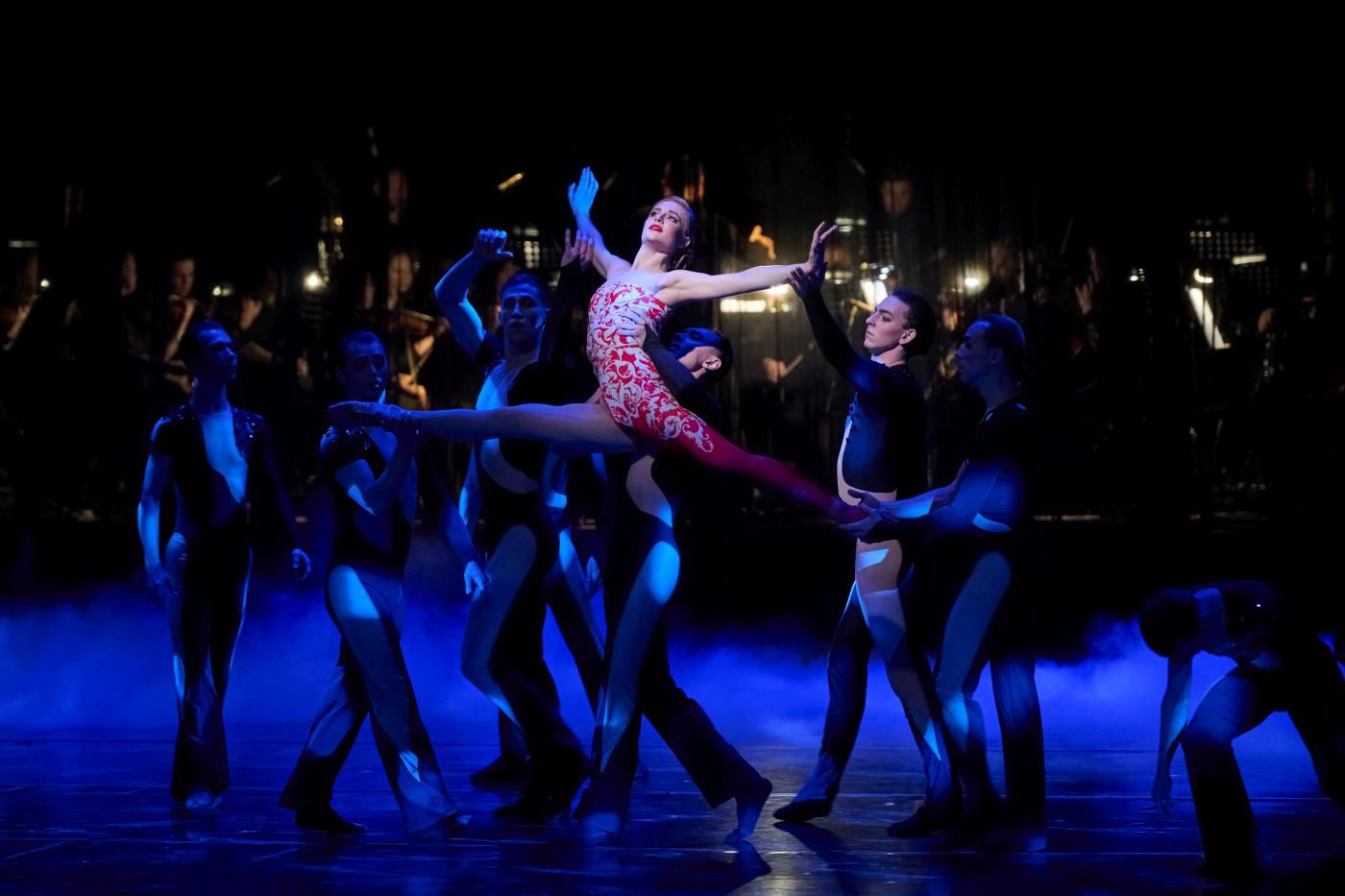 M. P. Musorgsky Leningrad Opera and Ballet Theatre, the Mariinsky Ballet, and the Bolshoi Ballet. In 2013, he debuted as a choreographer. Since 2020, Merkuriev has been the chief choreographer of the State Opera and Ballet Theater of the Komi Republic.
M. P. Musorgsky Leningrad Opera and Ballet Theatre, the Mariinsky Ballet, and the Bolshoi Ballet. In 2013, he debuted as a choreographer. Since 2020, Merkuriev has been the chief choreographer of the State Opera and Ballet Theater of the Komi Republic.
Maybe it’s because he danced the role of José in Roland Petit`s Carmen as well as Alberto Alonso’s Carmen Suite at the Mariinsky and the Bolshoi that Merkuriev decided to create his version of Carmen Suite to Bizet’s eponymous composition. In any case, the love triangle between Carmen, Don José, and the bullfighter, Escamillo, won him a nomination for the Prix Benois.
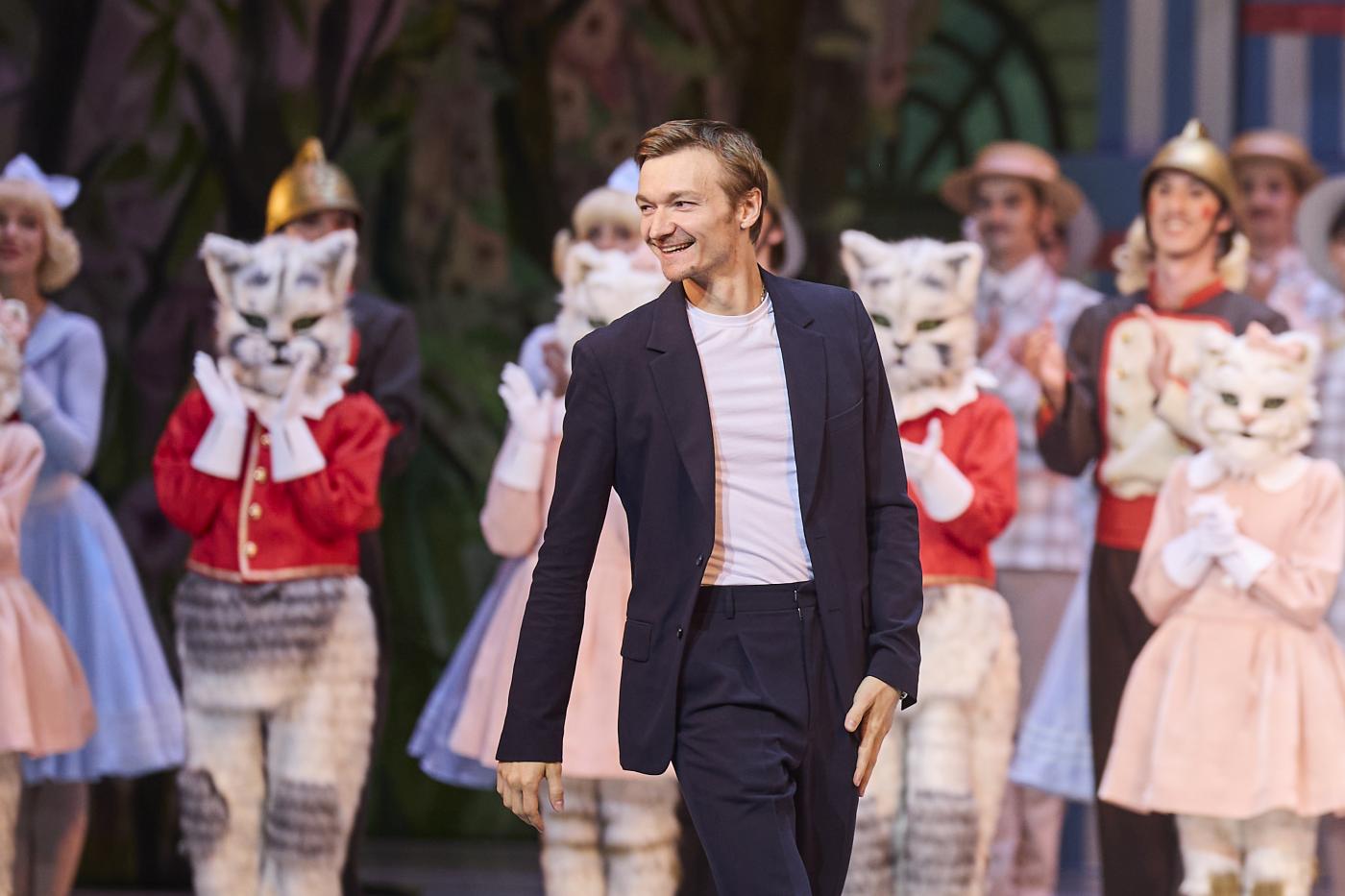
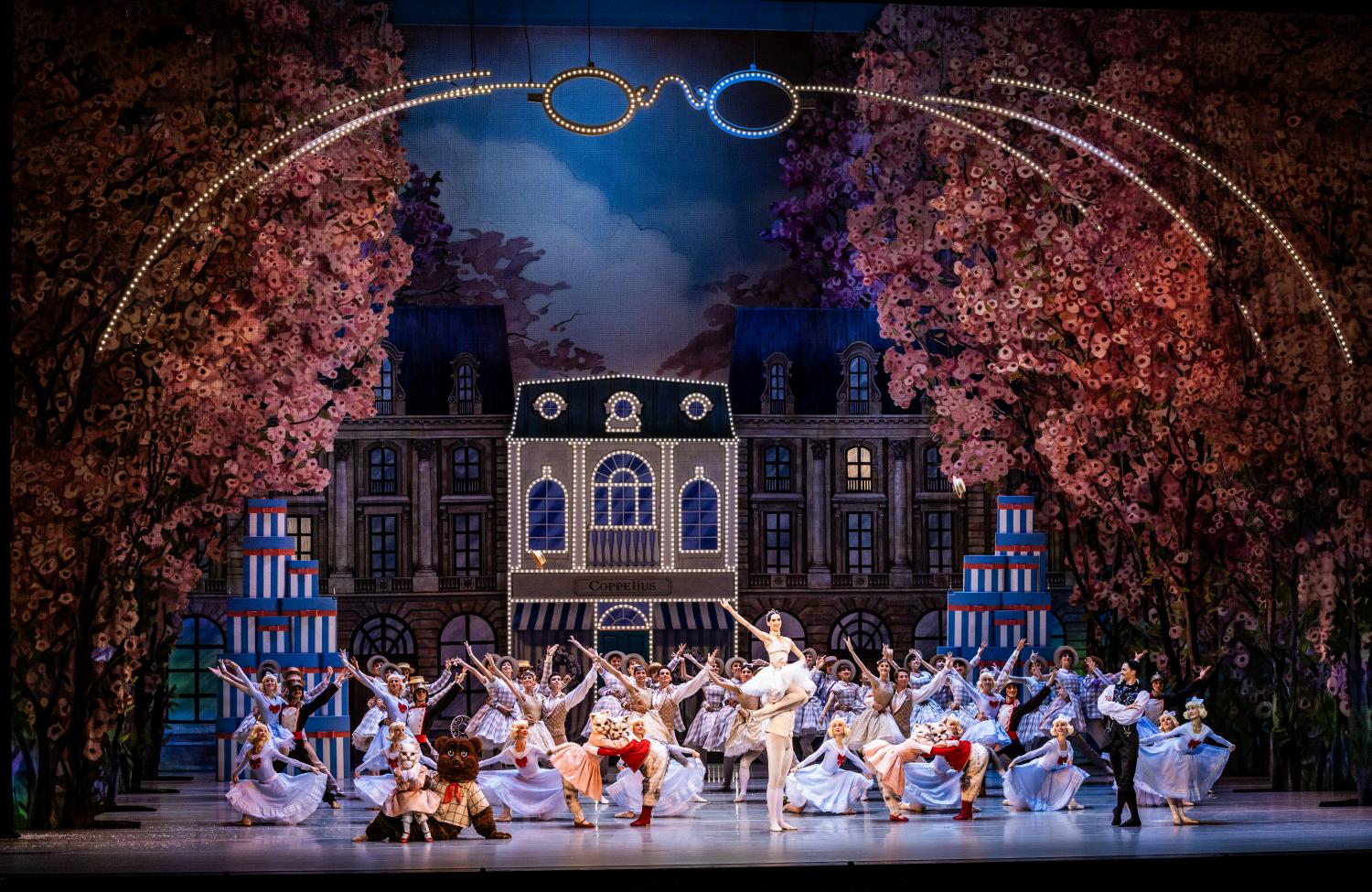 Alexander Sergeev, first soloist of the Mariinsky Ballet, was nominated for the Prix Benois for his Coppélia, which premiered at the Mariinsky Theatre at the end of the last season. Sergeev reshaped Delibes’s score to accompany the two (instead of the usual three) acts, which transport the audience to the cartoonish hometown of Swanilda and Frantz (populated by, amongst
Alexander Sergeev, first soloist of the Mariinsky Ballet, was nominated for the Prix Benois for his Coppélia, which premiered at the Mariinsky Theatre at the end of the last season. Sergeev reshaped Delibes’s score to accompany the two (instead of the usual three) acts, which transport the audience to the cartoonish hometown of Swanilda and Frantz (populated by, amongst 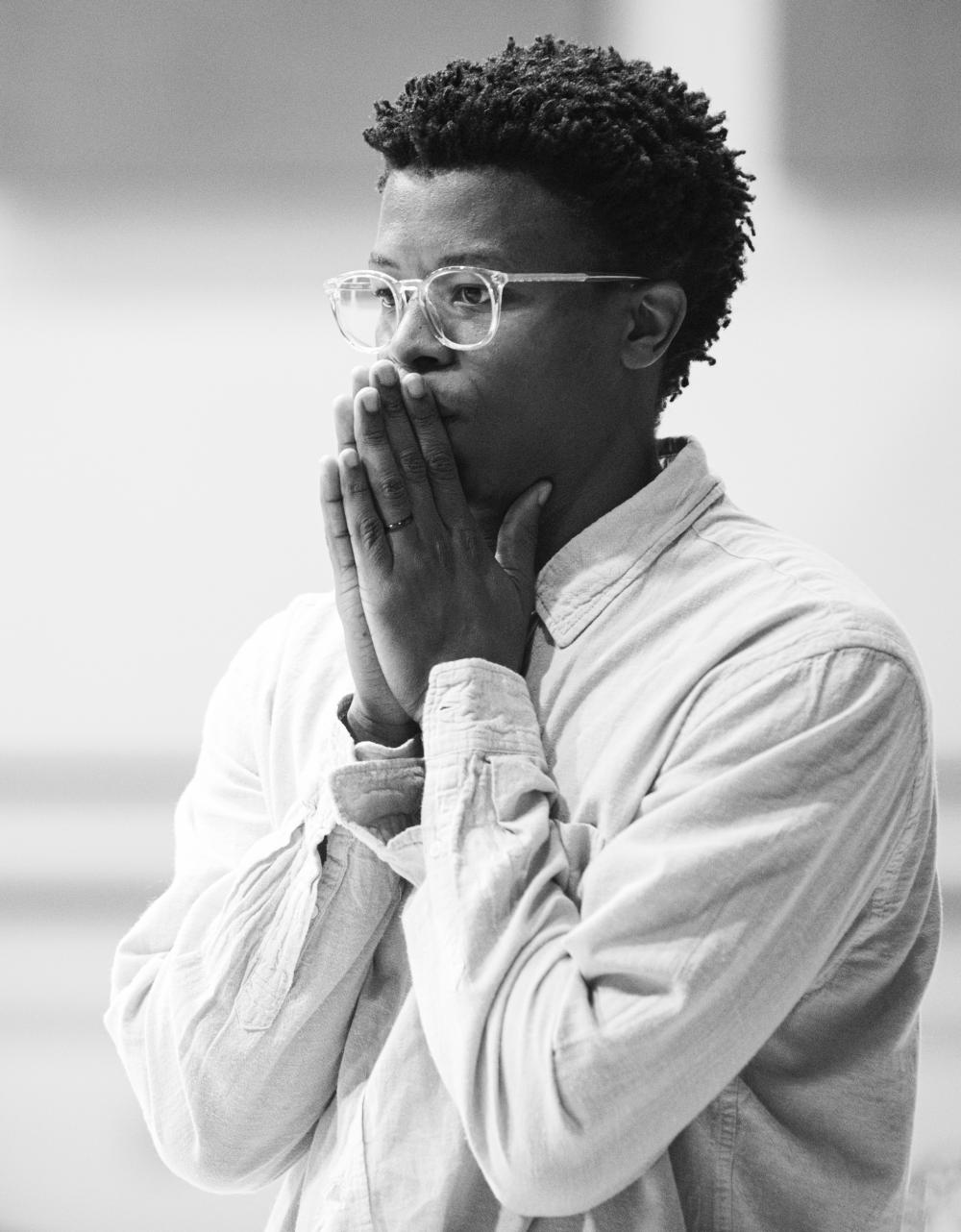 others, life-size kittens and a jolly bear designed by Leonid Alexeev). Instead of an old alchemist, Sergeev’s Coppelius is a young dandy who deceives Frantz with the help of magic eyeglasses. The eyeglasses make it hard to distinguish Swanilda amidst a multitude of clone-like dolls, but, as always, the clever Swanilda ensures a happy ending.
others, life-size kittens and a jolly bear designed by Leonid Alexeev). Instead of an old alchemist, Sergeev’s Coppelius is a young dandy who deceives Frantz with the help of magic eyeglasses. The eyeglasses make it hard to distinguish Swanilda amidst a multitude of clone-like dolls, but, as always, the clever Swanilda ensures a happy ending.
Mthuthuzeli November was trained and danced in Cape Town, South Africa, before joining London’s Ballet Black in 2015 where his first choreography premiered. He is known primarily for his works for British companies, but Chapter Two, November’s entry ticket for the Prix Benois, is one of the few pieces he choreographed on South African soil. November based it on his 2016 work Visceral for Cape Dance Company, which he reworked for Cape Ballet Africa’s inaugural triple-bill. He described Chapter Two as the turning of a new page, a continuation that is also a shift forward.

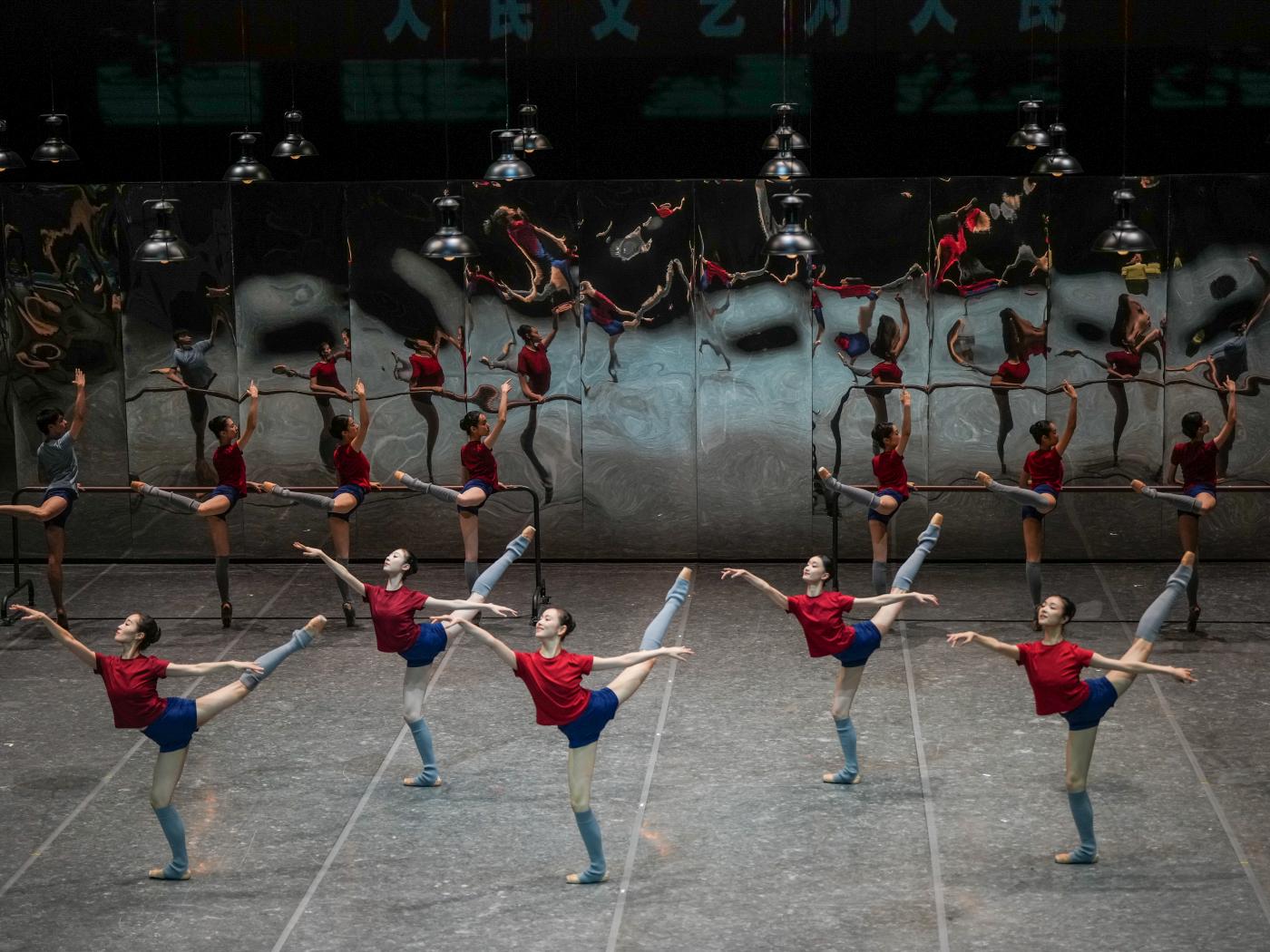 Wang Ge works as a postgraduate supervisor at the Beijing Dance Academy (where he also received his master’s degree) and the Shanghai Theatre Academy and is vice chairman of the China Dancers Association. He’s an established and multi-awarded authority of China’s dance scene. Lily, commissioned by the Shanghai Ballet, earned him a nomination for the Prix Benois. It’s based on an eponymous short story by the renowned Ru Zhijuan (1925-1998), which her daughter, Wang Anyi, also an esteemd author, adapted for the ballet stage. Set against the background of the Chinese revolution of the 1940s, the story revolves around the ordinary task of borrowing a blanket. Its print of white lilies gave the ballet its title. Wang contrasts the cruelty of war with the kindness of the three protagonists, a military nurse, soldier, and peasant woman.
Wang Ge works as a postgraduate supervisor at the Beijing Dance Academy (where he also received his master’s degree) and the Shanghai Theatre Academy and is vice chairman of the China Dancers Association. He’s an established and multi-awarded authority of China’s dance scene. Lily, commissioned by the Shanghai Ballet, earned him a nomination for the Prix Benois. It’s based on an eponymous short story by the renowned Ru Zhijuan (1925-1998), which her daughter, Wang Anyi, also an esteemd author, adapted for the ballet stage. Set against the background of the Chinese revolution of the 1940s, the story revolves around the ordinary task of borrowing a blanket. Its print of white lilies gave the ballet its title. Wang contrasts the cruelty of war with the kindness of the three protagonists, a military nurse, soldier, and peasant woman.
| Links: | Website of the Prix Benois Center | |
| Website of the Astana Ballet | ||
| “Sacred Dances” by Mukaram Avakhri, MTRK MIR in the Republic of Kazakhstan (video) | ||
| Website of the Shanghai Ballet | ||
| Website of the National Choreographic Center, Tours | ||
| Website of the Academic Opera and Ballet Theatre of the Komi Republic | ||
| Website of Cape Ballet Africa | ||
| “Chapter Two” by Mthuthuzeli November (central part of the triple bill “Salt”) | ||
| Website of the Mariinsky Ballet | ||
| “Coppélia” by Alexander Sergeev, Mariinsky TV | ||
| Photos: | 1. | Bolshoi Theatre © Bolshoi Theatre/Damir Yusupov |
| 2. | Statuette of the Prix Benois de la Danse, design by Igor Ustinov © Benois Center | |
| 3. | Mukaram Avakhri © Mukaram Avakhri | |
| 4. | Ensemble, “Sacred Dances” by Mukaram Avakhri © Astana Ballet |
|
| 5. | Thomas Lebrun © Thomas Lebrun | |
| 6. | Andrey Merkuriev © Andrey Merkuriev | |
| 7. | Ensemble, “Carmen Suite” by Andrey Merkuriev, Academic Opera and Ballet Theatre of the Komi Republic © Academic Opera and Ballet Theatre of the Komi Republic | |
| 8. | Alexander Sergeev, photo by Mikhail Vilchuk 2024 © Mariinsky Theatre |
|
| 9. | Ensemble, “Coppélia” by Alexander Sergeev, photo by Mikhail Vichuk 2024 © Mariinsky Theatre |
|
| 10. | Mthuthuzeli November © Mthuthuzeli November | |
| 11. | Wang Ge © Wang Ge | |
| 12. | Ensemble, “Lily” by Wang Ge, Shanghai Ballet 2024 © Shanghai Ballet | |
| 13. | “Lily” – Trailer, Shanghai Ballet 2024 © Shanghai Ballet | |
| Editing: | Kayla Kauffman |
